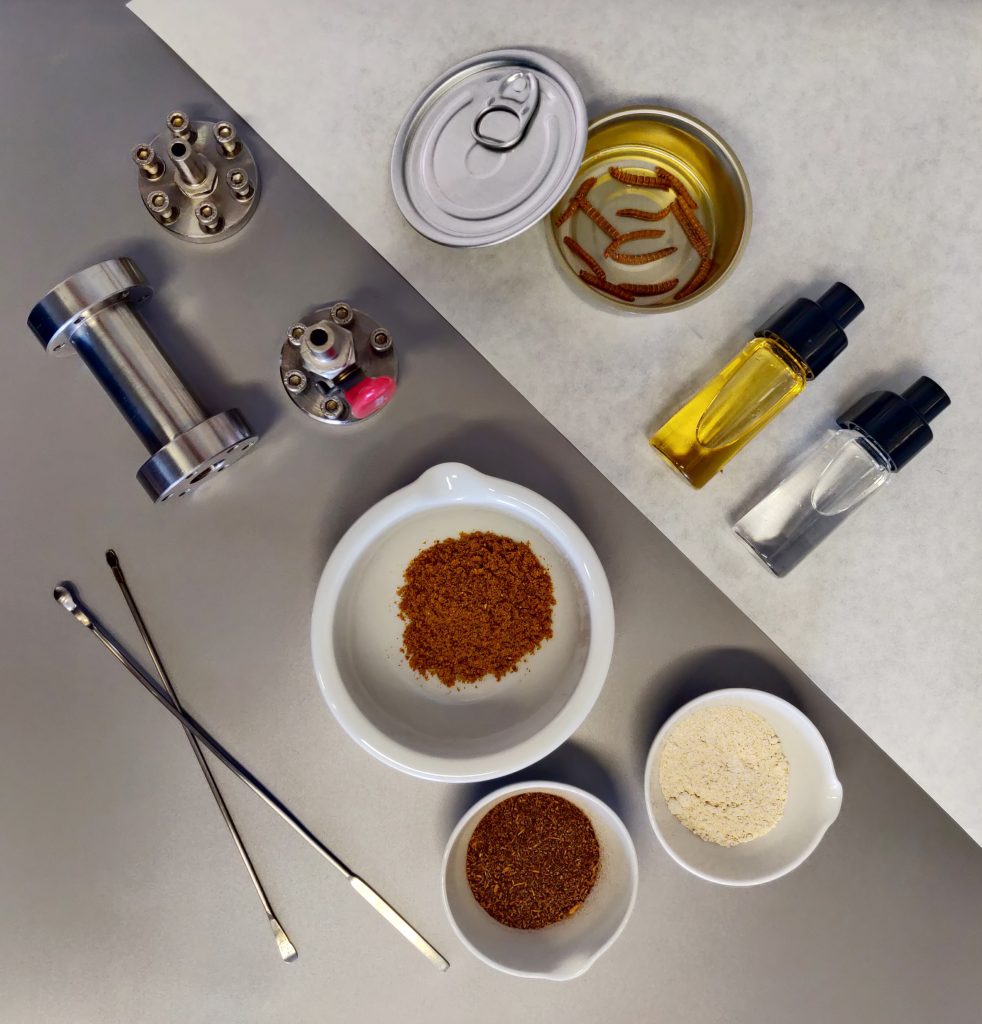04/06/2021
Researchers point out the feasibility of using black soldier fly protein in the food industry
Members of the Food, Innovation & Engineering (FoodIE) Research Group at the URV have analysed the properties of black soldier fly protein fractions to boost their use in the food industry. They have demonstrated that this insect protein is comparable to whey protein for sunflower oil emulsification, while it offers certain advantages for lemon oil encapsulation

Members of the Food, Innovation & Engineering (FoodIE) Research Group at the URV have analysed the properties of black soldier fly protein fractions to boost their use in the food industry. They have demonstrated that this insect protein is comparable to whey protein for sunflower oil emulsification, while it offers certain advantages for lemon oil encapsulation
The Food and Agriculture Organization (FAO) of the United Nations reports that the global population is likely to grow up to 9.8 billion by 2050 inducing a dramatic increase of food demand. There is a general agreement that the conventional protein sources (mostly from animals) will not be able to provide the approximately 260 million tons of proteins required by 2050, hence there is a need to explore alternative protein sources that are both sustainable and possess high nutritional value. The use of protein fractions obtained from edible insects has drawn increasing attention in the recent decades to fill the gap of the expected protein demand among other alternative protein sources such as agricultural products (for example, beans and legumes). However, there are still a small number of applications in the food and feed products, which are expected to increase after the European Food Safety Authority favorable opinion about the safety of yellow mealworm (Tenebrio molitor) larvae. Therefore, there is a pressing need to extend the knowledge on the properties of insect protein fractions to boost its use in the food industry.
In this study, a protein enriched fraction extracted from black soldier fly (Hermetia illucens) larvae was characterized and evaluated on the protein quality and functionality. It has been of special interest to determine techno-functional properties of the black soldier protein to be used for encapsulation of food ingredients, to replace dairy proteins that are commonly used nowadays by the industry. Sunflower oil and lemon oil were selected for this study, since the first one is commonly used as a carrier of oil-soluble bioactive compounds such as carotenoids and vitamin E, while lemon oil not only can provide pleasant lemon aroma but also can prevent growth of microorganisms. Moreover, the methodology selected to produce the emulsions is characterized by low-energy demand and high productivity, which makes it very attractive for industrial use.
In the first part of the study, a protein concentrate, 63% protein content and ammino acid composition that meets the FAO recommendation as a good dietary protein for adults, was obtained from the initial protein extract provided by a company. From the techno-functional properties analyzed, it was clear that the black soldier protein concentrate could be incorporated in feed-food formulations. Besides, it showed high foaming properties, which can be useful in foamy products, for instance whipped cream and soft drinks.
As for the comparison between black soldier fly protein concentrate and whey protein, it was demonstrated that this insect protein is comparable to whey protein for sunflower oil emulsification, while it offers certain advantages over whey protein to encapsulate lemon oil at the highest oil fraction tested.
The outcomes of this work point out the feasibility of using black soldier fly protein in various applications, especially as an emulsifying agent in stabilization of emulsions and encapsulation technology.
This study, recently published in the journal Foods, has received funding from the European Union’s Horizon 2020 research and innovation program under the Marie Skłodowska-Curie Actions and from URV. The doctoral theses of Junjing Wang and Jitesh Jayakumar are in line with this study. They are two of the 45 doctoral researchers contracted through the URV’s Martí i Franquès COFUND Programme.
Reference: Wang, Junjing; Jousse, Morane; Jayakumar, Jitesh; Fernández-Arteaga, Alejandro; de Lamo-Castellví, Silvia; Ferrando, Montserrat; Güell, Carme. 2021. “Black Soldier Fly (Hermetia illucens) Protein Concentrates as a Sustainable Source to Stabilize O/W Emulsions Produced by a Low-Energy High-Throughput Emulsification Technology” Foods 10, no. 5: 1048. DOI: https://doi.org/10.3390/foods10051048
